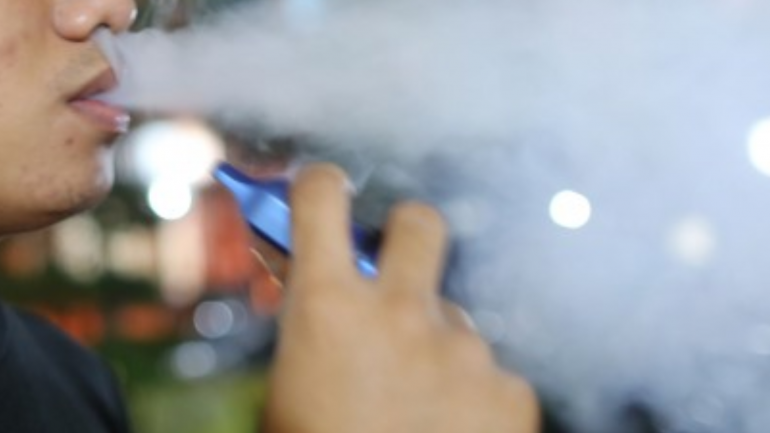Philippines Parents Against Vape appeals for the amendment of the Vape Law

Parents Against Vape (PAV) issued an appeal for the amendment of the Vape Law after expressing alarm over the report from the Department of Health that there is a 110% increase in vape users in 2023.
PAV is a nationwide organization of individuals and groups that work together to protect children and youth against the harms of vapes and e-cigarettes.
According to a statement, the statistic that 1 in 7 young teenagers, aged 13 to 15, are now using vape products is concerning because, according to Republic Act 11900, only those who are 18 years old and older should have access to vapes.
“Vaping is not a safe alternative to smoking. It poses significant health risks, especially to the developing lungs and brains of our children. Recent cases of Evali, E-cigarette, or vaping use-associated lung injury only serve to highlight one very clear fact: vaping is deadly! said PAV.
The group urged authorities to put in place measures to stop the marketing of vape products in a way that appeals to young people, with flavors like candy and fruit and sleek, high-tech designs.
“Flavors entice children. Information showed that we have more than 15,000 flavors in the country. This is a deliberate tactic by the vaping industry to hook a new generation on nicotine,” said PAV.
On Thursday, the World Health Organization (WHO) stated that tobacco companies still actively target young people via social media, sports and music festivals, and new, flavored products, accusing companies of trying to hook a new generation on nicotine.
As stricter regulations targeting cigarettes are in place, big tobacco companies and new entrants have begun offering smoking alternatives such as vapes, which they say are aimed at adult smokers.
However, according to WHO, young people are more likely to use these products than adults in many countries because of their appealing designs and variety of fruity flavors.
WHO Director-General Tedros Adhanom Ghebreyesu rejected the industry’s claim that it is working to reduce the harm from smoking. “It’s dishonest to talk about harm reduction when they are marketing to children,” he said.
“There is growing evidence that vaping can act as a gateway to traditional tobacco use. Adolescents who begin with vape products are more likely to transition to smoking cigarettes. Vaping is never a cessation tool for tobacco smokers, as claimed by the vaping industry. PAV agreed that the purpose of vaping is not to induce smokers to quit.
“We have studies from our FGD that show that a) some youth vapers have never smoked but went directly into vaping; and b) smokers who vape become dual users because they go back to using traditional cigarettes if they don’t have money to buy vape juice,” PAV said.
The PAV called on policymakers to amend the Vape Law, or Republic Act 11900. First, they should raise the accessibility age from 18 to 21, which was the previous age before Republic Act 11900.
The second strategy involves restricting the flavors to menthol and tobacco, similar to those found in traditional cigarettes. According to PAV, marketing vaping as a cessation tool eliminates the need to make it attractive and appealing, particularly for our children.
The Food and Drug Administration, not the Department of Trade and Industry, will regain the regulatory authority over vapes.
“We call on policymakers to implement stricter regulations on the marketing and sale of vape products, particularly those that appeal to young people. This includes banning flavored vapes and ensuring that packaging does not attract minors,” PAV said.
People have noted that the significant rise in youth vaping is a public health crisis, a "vapedemic," that requires immediate action.
Radio Veritas Asia (RVA), a media platform of the Catholic Church, aims to share Christ. RVA started in 1969 as a continental Catholic radio station to serve Asian countries in their respective local language, thus earning the tag “the Voice of Asian Christianity.” Responding to the emerging context, RVA embraced media platforms to connect with the global Asian audience via its 21 language websites and various social media platforms.













